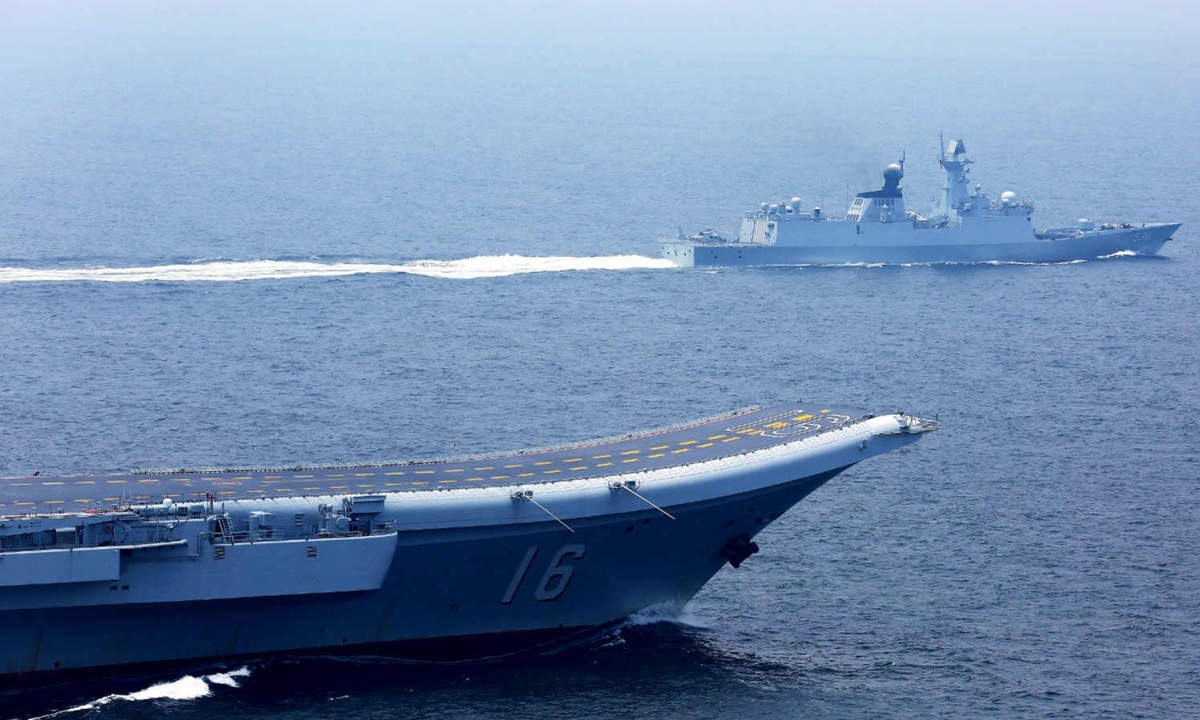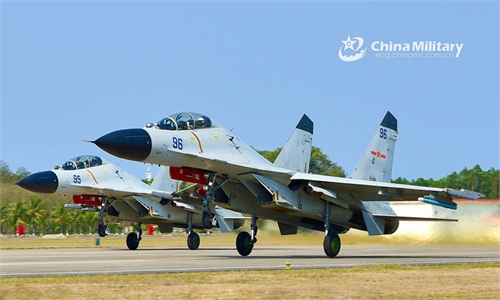
Vessels in the Taiwan Straits, July 20, 2017. /CGTN Photo
We tend to predict a People's Republic of China (PRC) response to the secession of the Taiwan island by viewing the scenario through a modern, pragmatic US lens.US China experts compare military arsenals and assure us that the island is merely a great power proxy whose fate is negotiable. Others believe the PRC's need for technologies, unfettered global trade, and economic stability will trounce any irrational sovereignty concerns. Still others stress the superiority of US ideological principles and the need to demonstrate credibility in our foreign relations. Finally, most are confident that the PRC is a near-peer nuclear adversary, and as such the US can safely call China's bluff.
The question is, are we looking through the right lens?
The Taiwan island conundrum is a strategic pause in the unresolved Chinese Civil War. Civil wars are particularly brutal, as demonstrated in China, Korea and Vietnam, together the three deadliest civil wars in modern history.
The US had its own experience with the attempted secession of renegade territories leading to the deadliest war in US history. Psychological and emotional factors in all those civil war conflicts often defied any conventional, rational, or pragmatic calculus.
Therefore, we know some things about ourselves that can help us decipher the true meaning of the island of Taiwan to China. The first step is to stand in the PRC's shoes, look through their lens, and reflect on our Union's determination to thwart the Confederacy's secession during the American Civil War.
US motives for preventing the South's succession are well known, including ending slavery, freeing labor for Northern manufacturing, and preventing the erosion of US global power. Most significantly, the South's ambitions threatened America's sovereign identity, i.e. its very existence as a nation. Preserving the Union was therefore the core emotional and non-negotiable US national security priority. Short of the Confederacy's capitulation, a total and unrestricted war was guaranteed.
US foreign relations at the time are also instructive. British leaders, aristocracy and workers loathed the US. They believed that dissolution of the Union would enhance British power, open markets, and avert a domestic economic crisis. France unofficially supported Confederacy's belligerency and provided a stream of supplies to the South, holding out hope to collaborate with Britain in a military intervention on the side of the South. However, both knew that a war with the Union would be total and potentially disastrous for their nations. While Britain and France wanted the Confederacy to prevail, both wisely hesitated from militarily interfering in their national self-interests.
Our uncompromising will to fight using any necessary means was the decisive factor that deterred foreign power intervention and led to America's Civil War victory. To understand the PRC's grit on preserving one China we need only to look at ourselves in the mirror.
The next question is can we apply lessons from our historical grit on matters of sovereignty to take heed in the nuclear age while there is still time?
The author is a retired Marine Corps infantry officer who now serves as a US civil servant. Opinions are of the author and do not represent the US government. opinion@globaltimes.com.cn



